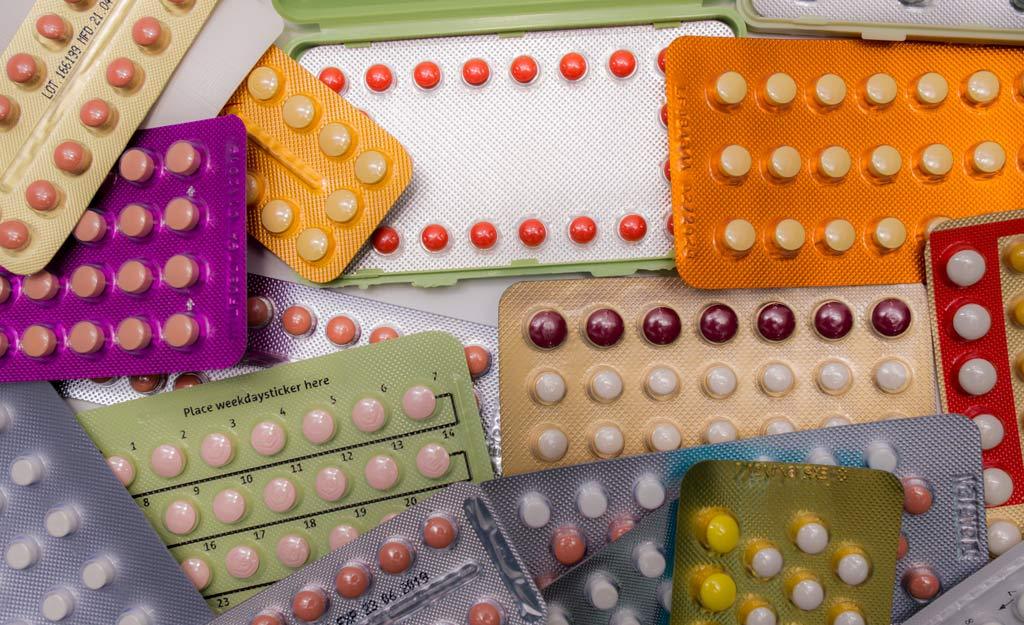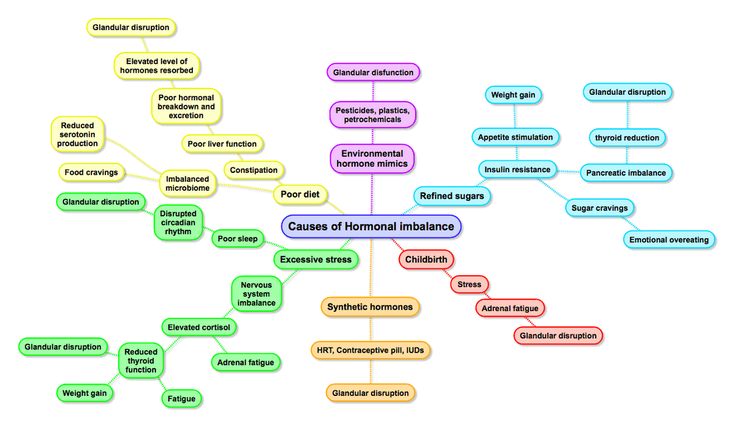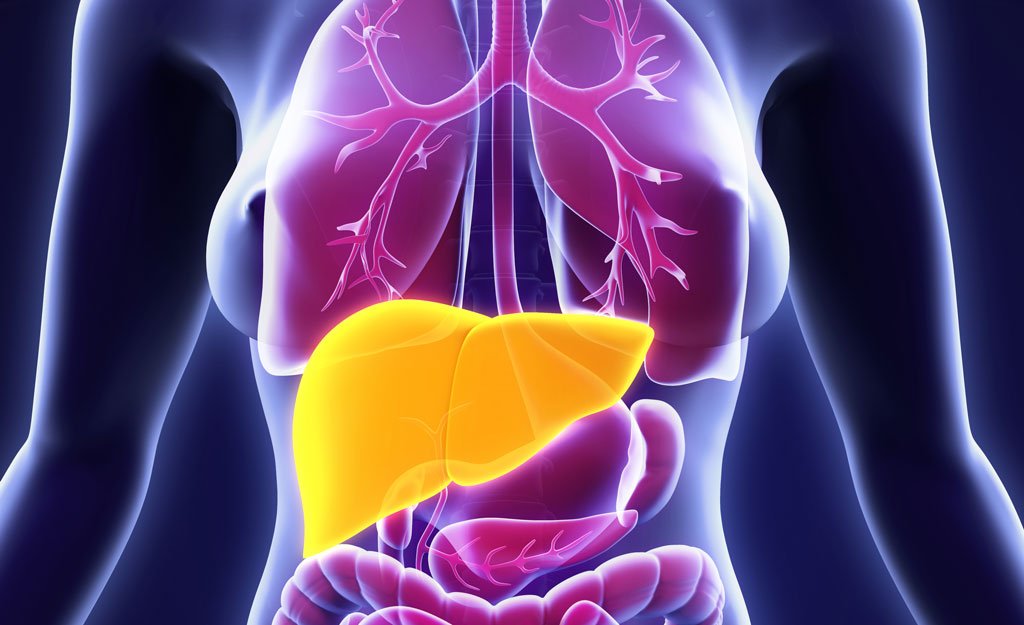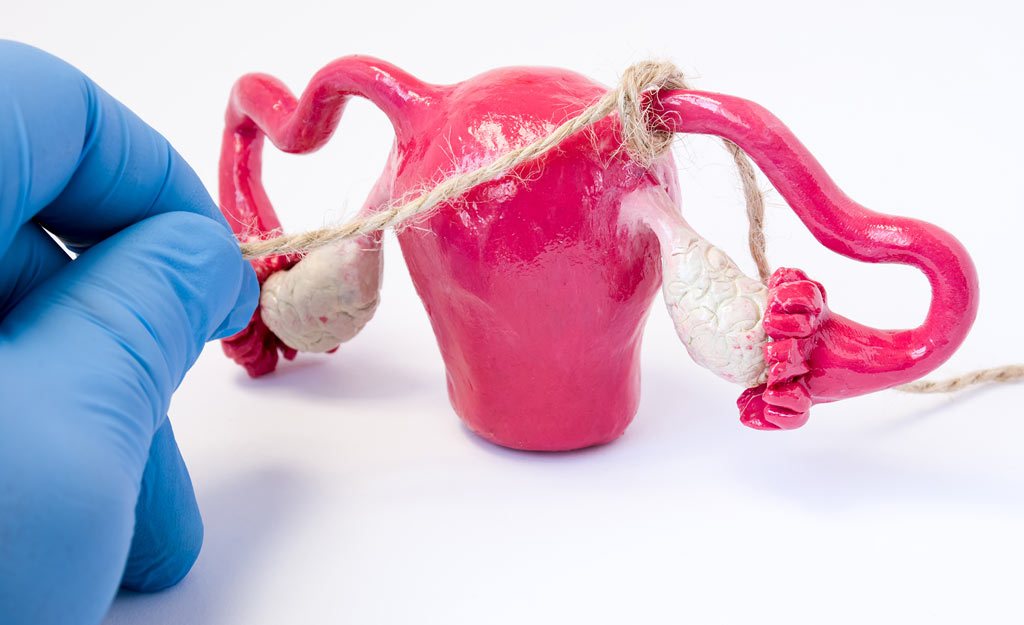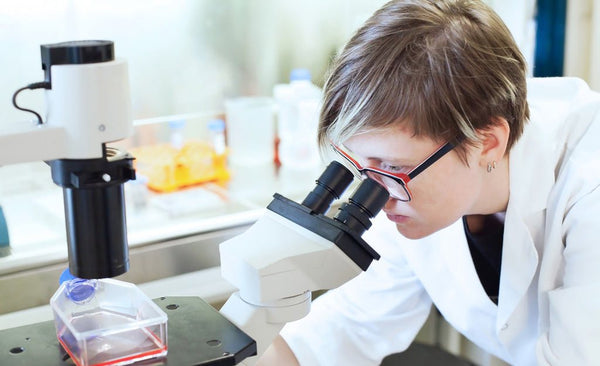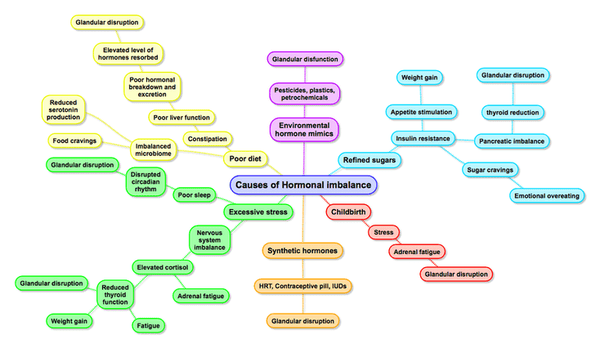Dangers of Synthetic Hormones
The common oral contraceptive pill (OCP) literally changed our society by liberating couples and protecting against unwanted pregnancies.
It changed the way we approached intercourse and relationships. At the same time, it had a deeper and more sinister impact on the health of women, which is rarely discussed and needs to be highlighted so that couples can make an informed choice based on the health of the women vs. the inconvenience of barrier contraception.
We have been lead to believe that the OCP and other forms of hormonal contraception such as Implanon, Mirena and Depo-Provera, along with hormone replacement therapy (HRT) are benign and safe.
However, these are serious medications with serious health consequences which should be thoroughly investigated before prescribing them, either as a contraceptive or a treatment.

The main issue is the symptoms of hormonal and endocrine imbalance caused by synthetic hormones are not often obvious. A certain percentage of women simply don't tolerate hormones, which is obvious within months for some women; however, for most women, the effects are gradual and systemic. The reason for this is because hormone ingestion is all or nothing.
Our body's hormonal cycle is extremely complex, and by placing a hormone into the system it disrupts hundreds of other cycles in the body that are linked to the reproductive cycle.
The second aspect is that by supplying the body with blanket hormones, the body then stops its own hormone production. This has led to the epidemic of menopausal symptoms, as a woman's body fails to produce the necessary levels of hormones due to the reduction in the amount the ovaries produce.
Probably the most common side-effect that illustrates the endocrine disruption from synthetic hormones, is the huge numbers of thyroid problems that occur in women from the age of 40. Thyroid medications are now surpassing heart medications in the sheer number of prescriptions.
Another common side-effect from synthetic hormones is mood disorders - from mood swings to anxiety and depression. These are also in epidemic proportions.
Recently it was shown clearly how teens have an elevated risk of depression from taking the pill, and in time it will be linked to adult depression as well.

Hormones either from contraception or hormone replacement therapy are synthetically manufactured. This means the body will not utilise these hormones particularly well, so the doses need to be quite high to obtain a therapeutic response.
These large doses of hormones need to be metabolised. Metabolism of these hormones causes a depletion of essential nutrients B6, B9, B 12, Zinc and Magnesium, vitamin C, E and essential fatty acids. And these nutrients are the very same nutrients needed to maintain a healthy hormonal system.
Women with chronic hormonal conditions, like Premenstrual Dysphoric Disorder (PMDD), Endometriosis and Polycystic Ovarian Syndrome (PCOS), often have an underlying genetic inability to metabolise hormones. When additional synthetic hormones are then added into their system, these synthetic hormones literally become a poison for these women.
Apart from the larger systemic side-effects of the Pill and HRT - such as glandular disruption and nutrient deficiencies - there is a range of proven side-effects women need to be aware of.
Due to the widespread use of these hormones, the public perception is that they are safe. This is far from the truth, and women should think seriously about taking synthetic hormones if they are not essential.
Risk factors increasing with age and duration of taking synthetic hormones:
- Two to eight-fold increase in blood clots
- Three to six-fold increase in the risk of heart attacks
- Increased risk of gallbladder disease (gallstones)
- Increased risk of liver tumours
- Increased risk of ectopic pregnancies
- Increased risk of osteoporosis
- Increased risk of breast cancer
- Increased chance of hardening of the arteries
There are also a range of less serious, yet life-disrupting symptoms such as; weight gain, migraines, fungal infections (Candida), vaginal discharges (thrush), breast cysts, fibrocystic breast disease, tender breasts, high blood pressure, increased cholesterol, breakthrough bleeding, fluid retention, acne, mouth ulcers, hair loss, facial and body hair, varicose veins, liver function disruption, psychological and emotional disorders...
The link to breast cancer is being proven and disproven with different research, depending on who is funding it. But it just makes common sense that hormone-dependent breast cancers must have some causal element via taking synthetic hormones.
A trial in 2005 involving over 15,000 women was halted after 3 years because the risk vs. benefit ratio was exceeded. This means the use of the synthetic hormones was too dangerous to continue!
Researchers found a 12% increase in the risk of fatal and non-fatal malignancies (cancers) in women taking the synthetic oestrogen and progesterone. The dramatic increase in the risk of cancer explains why the rates of breast cancer have risen from approximately 1:50 in 1950 to 1:10 today.
1950 is the year that synthetic hormones first began to be used commonly by women. This study looked only at women aged 50 to 79 taking HRT. More research is needed to evaluate the risk of synthetic hormones used in contraception for younger women, to determine the risk.
In certain cases synthetic hormones may be indicated as a short-term treatment to manage dangerous symptoms; however, there are always better long-term treatment options, which look at the cause of the disease rather than just symptoms.
Balance the glandular system and not the hormonal system, and then you have the right situation for a cure.
Hormonal imbalances cannot be cured with hormones, they only exacerbate the condition in the long term. We have no vested interest in taking women off hormone contraception, apart from their own health. We feel it's important to raise the awareness of these medications if nothing else do your own research and weigh up the risks for your own health.

